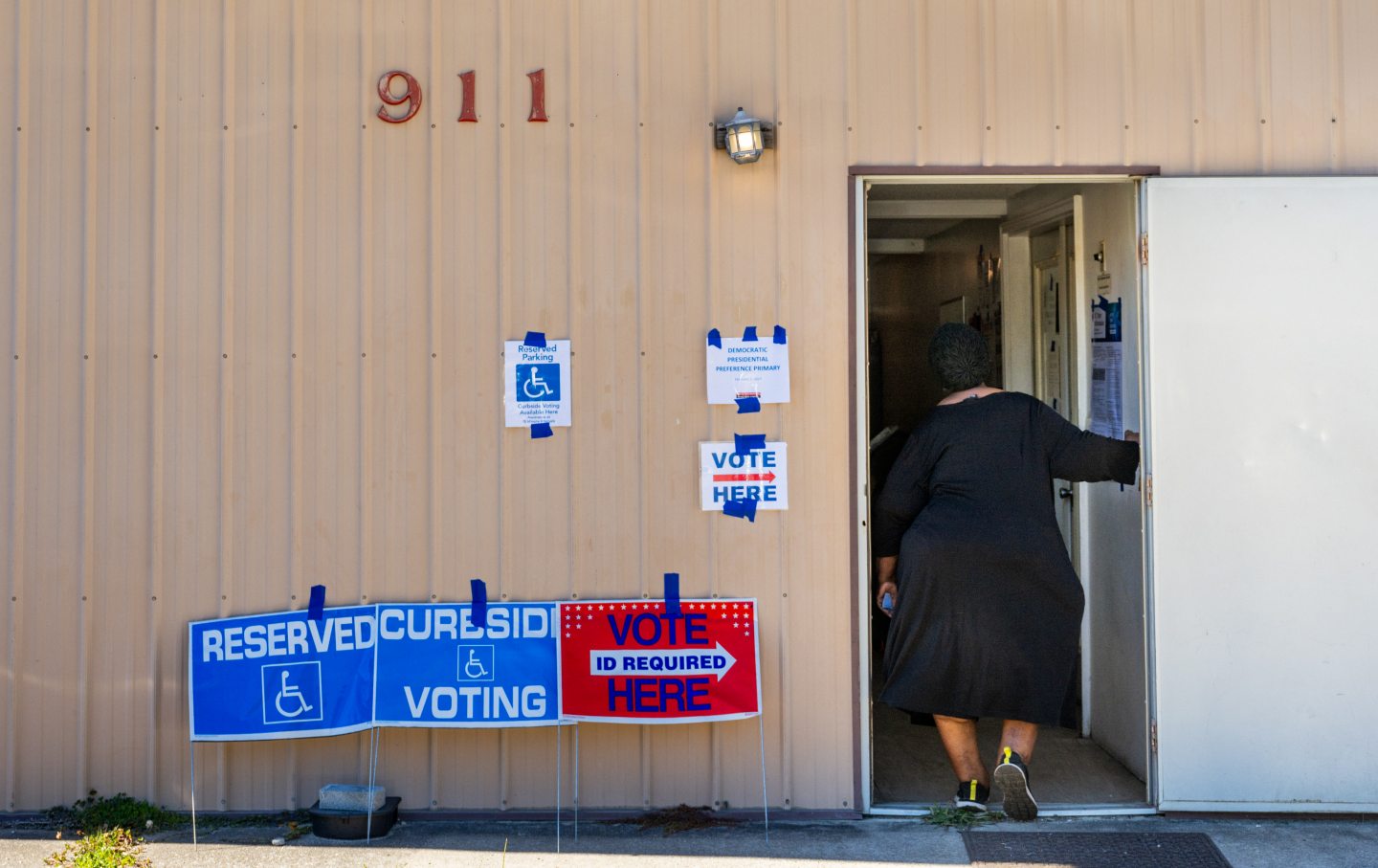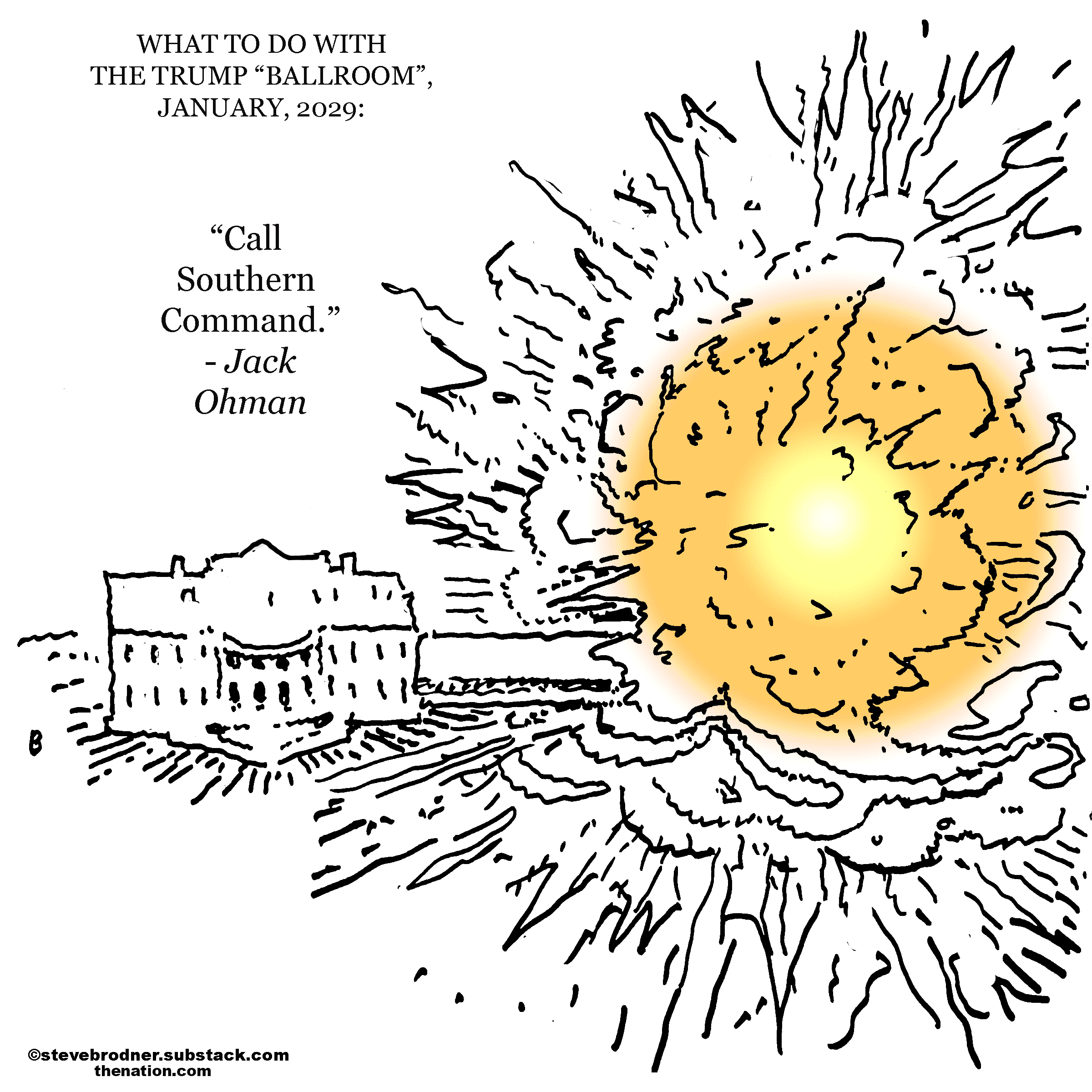The Only Thing Worse Than Taking Rural Voters for Granted
… is dismissing them as out of reach for Democrats.

Donald Trump often tells rural folks that he loves them. Contrary to myth, not all of them love him back. According to The Rural Voter, a new book by the political scientists Nicholas Jacobs and Dan Shea, only about one in 10 rural people are what they call “rabble-rousers”—the kind of MAGA die-hards who tweet incessantly or raise a stink at school board meetings, often with an intimidating edge.
While more conservative on average than urbanites, rural Americans are far from monolithic—racially, culturally, or politically. Even among rural conservatives, about a third are less fans of Trump than they are people who’ve come to mistrust Biden.
Some of these folks are potential Biden voters. To win in November, the president needs every one of them he can get.
In 2012 and 2018, one of us (Anthony) ran for Congress in Virginia’s Ninth District, a mainly rural area in the southwestern corner of the state. The district previously had a Democratic congressman for 28 years and sent several Democrats to the state Legislature. While the Tea Party victories of 2010 ushered in what appeared to be sudden changes to the region’s politics, the underlying causes of that red wave had been festering for decades.
Southwestern Virginia’s shift from a politically purple region to one that votes more than 70 percent Republican is the story of much of the American countryside. Rural America is working-class country, and the decline of Democratic power there tracks the party’s broader failure to hang on to what was once its working-class base.
As recently as 2008, Barack Obama won 45 percent of rural and 46 percent of white working-class votes nationwide. In 2016, barely three in 10 rural Americans voted for the Democratic presidential candidate. Liberal pundits—most of them urban—often ascribe this shift to deep-seated racism and anger at being “left behind” by the so-called knowledge economy. That analysis misses the mark by a country mile.
Rural America hasn’t been left behind so much as it has been worn down: by timber, coal, gas, copper, and other metals extracted until what’s left is too expensive to reach; by companies pulling out and workers left holding the bag; by hogs, cattle, chickens, and grains produced and shipped out in abundance, with farmers getting only pennies on the dollar that consumers pay; by midsize textile and furniture factories steadily upgrading equipment and worker skills, only to be undermined by trade policies that favor cheaper labor anywhere it can be found.
As rural economies imploded, Democrats and Republicans alike stood idly by. But liberals added insult to injury by looking down on the “dank backwaters” of rural America or glibly insisting that people abandon their communities and go where the jobs are.
Rural Americans are angry because we’ve spent decades at jobs making homes warmer and food cheaper for our suburban and urban neighbors, only to be economically discarded and culturally vilified as racist rubes. As one Iowa Republican put it, “It was a huge insult to say that you support Trump because you’re racist. A lot of them here voted for Obama. Democrats see us as uneducated, simple thinkers who’ve got guns. It’s a huge boon for the Republican Party.”
Trump has a knack for stoking resentment, and in 2016, rural resentment was plentiful, mostly against the establishment and the political class. Nation contributing editor Christian Parenti sacrificed many hours of his life listening to countless Trump speeches. “Trump took the Bernie [Sanders]–style populism,” he wrote, “emptied it of real class politics, reduced it to a jumble of affective associations, and used it to beat up the smug liberals of the professional-managerial class. It worked.”
People in rural areas are overwhelmingly working-class—about 70 percent lack college degrees—as are voters in the swing states Biden must win (Michigan, Pennsylvania, Wisconsin, Nevada, and Arizona). Fortunately, working-class voters are swingy: Of the battleground-state voters who switched to the Democrats between 2016 and 2020, an estimated 72 percent were non–college graduates.
Biden won 32 percent of the rural vote in 2020, a small but crucial one-point improvement over Hillary Clinton’s performance in 2016. Clinton had a single, short-term rural outreach staffer, based—we kid you not—in Brooklyn. A Biden campaign spokesperson tells us the president will soon be hiring a rural engagement director, and we’re optimistic that person will actually visit people and places outside of the Acela corridor.
Popular
“swipe left below to view more authors”Swipe →Heading into November, Biden is well-positioned to capture rural swing voters because of his administration’s pro-rural, pro-labor accomplishments. From cracking down on monopolies that gouge consumers and shortchange farmers, to shoring up labor laws, to making massive investments in rural infrastructure and family farms, Biden has put his administration’s money where Trump’s mouth was. Indeed, his first term has been more progressive for working people than anything we’ve seen in over four decades. And if his State of the Union address is any indication, we can expect another round of investments that benefit working Americans during his second term.
Democrats won’t win a majority of rural voters anytime soon, but they absolutely must improve their numbers in the countryside. Significantly high defections among Latino, Black, and young voters mean that Democrats cannot rely on their base alone.
Yet Biden is already under enormous pressure from the campaign-industrial complex to blow off rural voters as irredeemable MAGA bigots. Recall Chuck Schumer’s 2016 game plan: “For every blue-collar Democrat we lose in western Pennsylvania, we will pick up two moderate Republicans in the suburbs in Philadelphia, and you can repeat that in Ohio and Illinois and Wisconsin.”
The result was not only victory for Trump but the collapse of the Democrats’ historic “blue wall.” That wall must be built back better, from the tribal lands to the Black Belt to the hollers of Appalachia. We rural Americans are once and future Democrats.
Disobey authoritarians, support The Nation
Over the past year you’ve read Nation writers like Elie Mystal, Kaveh Akbar, John Nichols, Joan Walsh, Bryce Covert, Dave Zirin, Jeet Heer, Michael T. Klare, Katha Pollitt, Amy Littlefield, Gregg Gonsalves, and Sasha Abramsky take on the Trump family’s corruption, set the record straight about Robert F. Kennedy Jr.’s catastrophic Make America Healthy Again movement, survey the fallout and human cost of the DOGE wrecking ball, anticipate the Supreme Court’s dangerous antidemocratic rulings, and amplify successful tactics of resistance on the streets and in Congress.
We publish these stories because when members of our communities are being abducted, household debt is climbing, and AI data centers are causing water and electricity shortages, we have a duty as journalists to do all we can to inform the public.
In 2026, our aim is to do more than ever before—but we need your support to make that happen.
Through December 31, a generous donor will match all donations up to $75,000. That means that your contribution will be doubled, dollar for dollar. If we hit the full match, we’ll be starting 2026 with $150,000 to invest in the stories that impact real people’s lives—the kinds of stories that billionaire-owned, corporate-backed outlets aren’t covering.
With your support, our team will publish major stories that the president and his allies won’t want you to read. We’ll cover the emerging military-tech industrial complex and matters of war, peace, and surveillance, as well as the affordability crisis, hunger, housing, healthcare, the environment, attacks on reproductive rights, and much more. At the same time, we’ll imagine alternatives to Trumpian rule and uplift efforts to create a better world, here and now.
While your gift has twice the impact, I’m asking you to support The Nation with a donation today. You’ll empower the journalists, editors, and fact-checkers best equipped to hold this authoritarian administration to account.
I hope you won’t miss this moment—donate to The Nation today.
Onward,
Katrina vanden Heuvel
Editor and publisher, The Nation
More from The Nation


The Supreme Court Has a Serial Killer Problem The Supreme Court Has a Serial Killer Problem
In this week's Elie v. U.S., The Nation’s justice correspondent recaps a major death penalty case that came before the high court as well as the shenanigans of a man who’s angling...

Corporate Democrats Are Foolishly Surrendering the AI Fight Corporate Democrats Are Foolishly Surrendering the AI Fight
Voters want the party to get tough on the industry. But Democratic leaders are following the money instead.

Marching Against a Corrupt Regime Marching Against a Corrupt Regime
People taking to the streets for democracy.

It Would Be Madness to Give Trump and His Toadies Even More Power It Would Be Madness to Give Trump and His Toadies Even More Power
And yet, that’s what the Supreme Court appears prepared to do.

Trump Is Dragging Republicans to Crushing Defeat After Crushing Defeat Trump Is Dragging Republicans to Crushing Defeat After Crushing Defeat
The president is deeply unpopular, his policies are failing, and Republicans are losing—everywhere.


